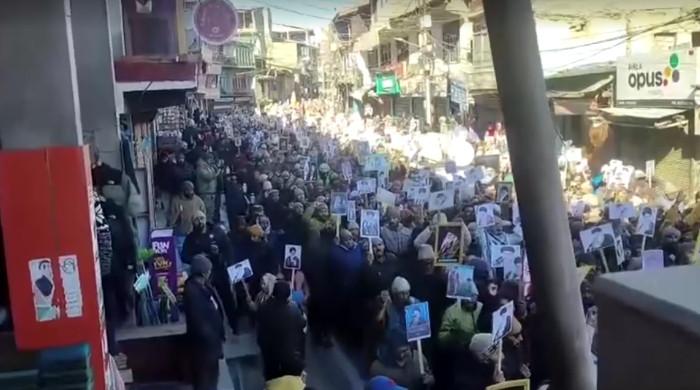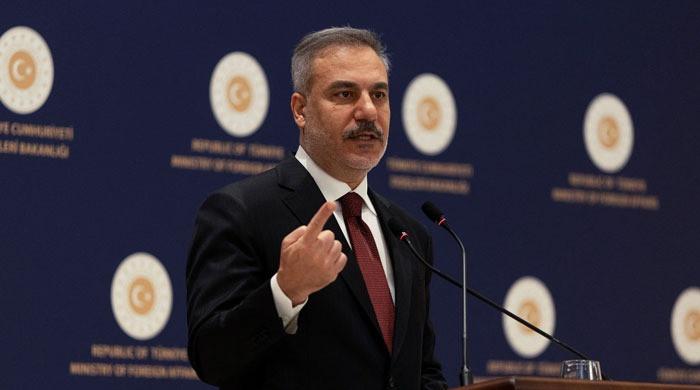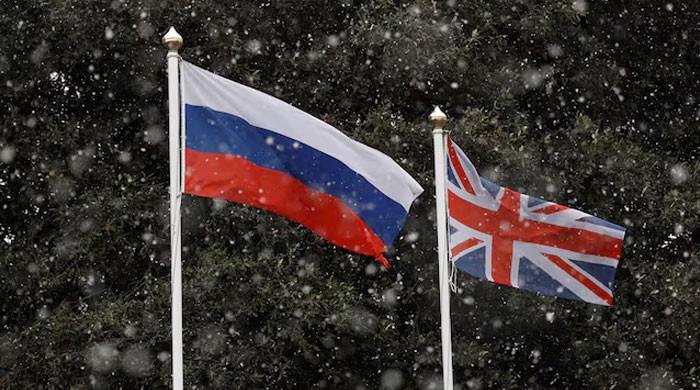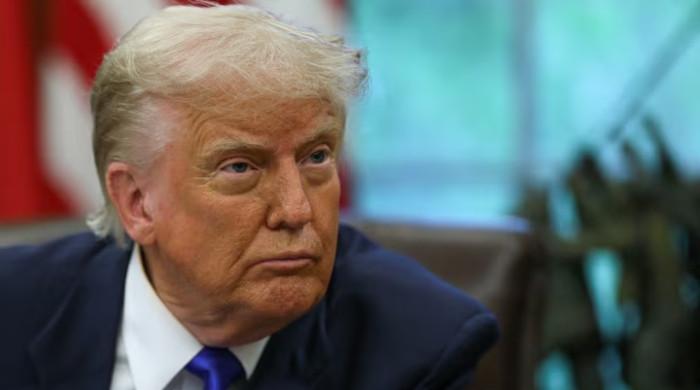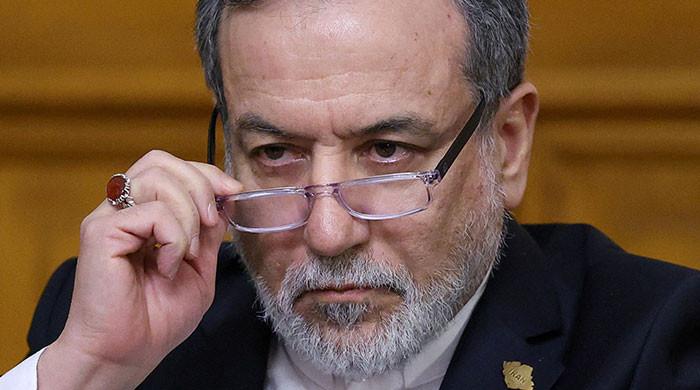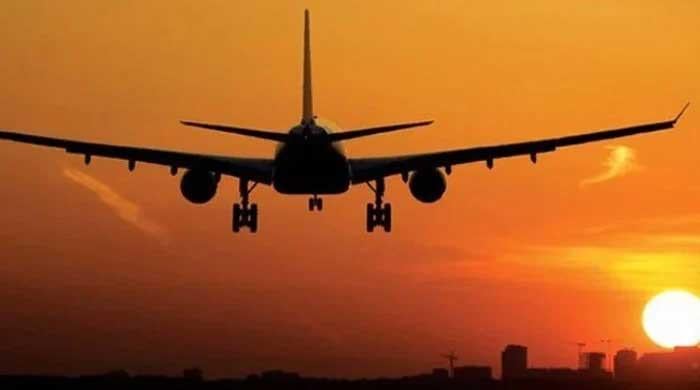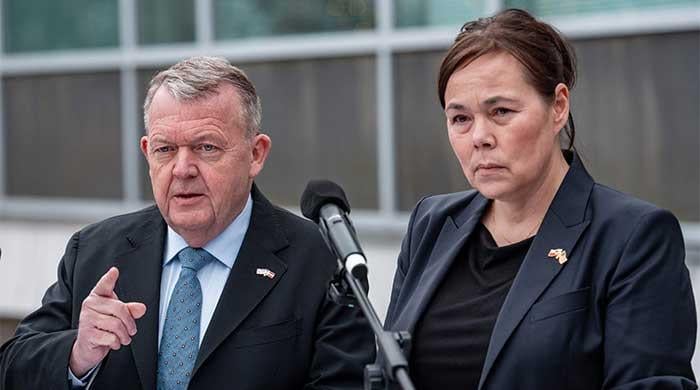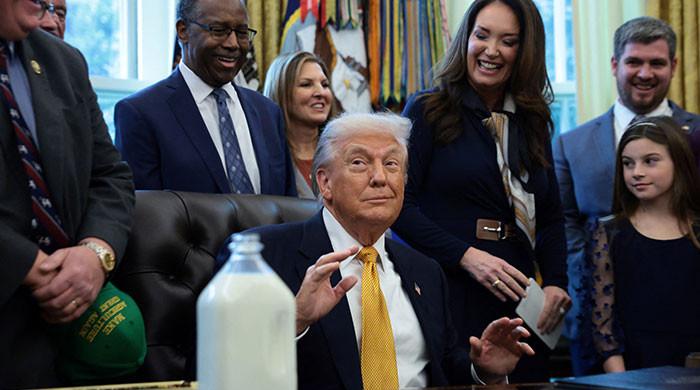Myanmar protesters try to block aid shipment to Muslim Rohingya
Hundreds of protesters were involved in the attempt to stop Red Cross workers loading a boat with relief supplies bound for the north of Rakhine State
September 21, 2017
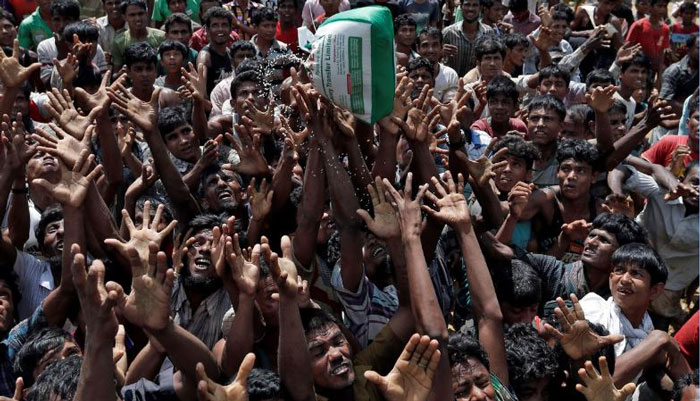
MARSHALLSITTWE: Buddhist protesters in Myanmar threw petrol bombs to try and block an aid shipment to Muslims in Rakhine State, where the United Nations has accused the country's military of ethnic cleansing.
The incident on Wednesday, ended when police fired in the air to disperse the protesters, reflected rising communal animosity and came during an official visit by US Deputy Assistant Secretary of State Patrick Murphy.
Murphy said later, after talks with government leaders, that Washington was alarmed by reports of rights abuses and called on authorities to stop the violence, which raised concern about Myanmar's transition from military rule to democracy.
Myanmar's army chief on Thursday called for internally displaced non-Muslims to go home.
In a speech on his plans for Rakhine State while on his first visit there since strife erupted, he made no mention of the estimated 422,000 Rohingya Muslims who have crossed the border into Bangladesh.
They have fled Myanmar to escape a sweeping counter-insurgency operation by his army in response to attacks by Rohingya insurgents on August 25.
Hundreds of protesters were involved in the attempt to stop Red Cross workers loading a boat with relief supplies bound for the north of Rakhine State, where the insurgent attacks last month triggered the military backlash.
The boat being was loaded with aid at a dock in the state capital of Sittwe, a government information office said.
"People thought the aid was only for the Bengalis," the secretary of the state government, Tin Maung Swe, told Reuters, using a term that Rohingya find offensive.
Protesters threw petrol bombs and about 200 police eventually dispersed them by shooting into the air, a witness and the government information office said.
The witness said he saw some injured people.
Eight people were detained, the office said.
No aid workers were hurt, a spokeswoman for the International Committee of the Red Cross said.
Plight
The tension between majority Buddhists and Rohingya, most of whom are denied citizenship, has simmered for decades in Rakhine, but it has exploded at times over the past few years, as old enmities surfaced with the end of decades of harsh military rule.
The latest bout of bloodshed began with August´s insurgent attacks on about 30 police posts and an army camp, in which about a dozen people were killed.
The government says more than 400 people, most of them insurgents, have been killed since then.
Rights monitors and fleeing Rohingya say the army and Buddhist vigilantes have mounted a campaign to drive out the Muslim population and torch their villages.
Myanmar rejects that, saying its forces are tackling insurgents of the Arakan Rohingya Salvation Army who it has accused of setting the fires and attacking civilians.
The crisis has drawn international condemnation and US President Donald Trump called on Wednesday for a quick end to the violence.
The plight of the Rohingya has raised questions about the commitment of government leader Aung San Suu Kyi to human rights.
Nobel peace prize laureate Suu Kyi addressed the nation on Tuesday and condemned abuses and said all violators would be punished.
However, she did not address the UN accusations of ethnic cleansing by the military, which is in charge of security.
'Disproportionate'
Murphy, the most senior foreign official to visit Myanmar since the violence erupted, met government officials and representatives of different communities in Sittwe.
"It's become quite clear to many that the Burmese security forces have had a response that is disproportionate and failed to protect all local populations," he later told reporters.
The situation could have an impact on Myanmar´s transition and risked creating "a more significant terrorism problem".
"We continue to call on the Burmese authorities to respect the rule of law, stop the violence - including that perpetrated by local vigilantes," he said, adding that he had raised concern about two remote Muslim villages cut off by hostile Buddhists that Reuters reported about this week.
Military chief Senior General Min Aung Hlaing said his forces had handled the situation as best they could and he urged the internally displaced, most of them Buddhist, to go home.
"For the national races who fled their homes, first of all they must go back ... that is their rightful place," he said in a speech in Sittwe.
"National races" refers to officially recognised indigenous ethnic groups.
The Rohingya are not recognised as a "national race" and Min Aung Hlaing did not refer to their return.
The Bangladesh government and aid groups are struggling with shortages of food, water, shelter and medical supplies for the refugees, who keep coming, though at a slower pace than over the past couple of weeks, officials say.
The group Medecins Sans Frontieres said a "massive scale-up of humanitarian aid in Bangladesh is needed to avoid a massive public health disaster".




